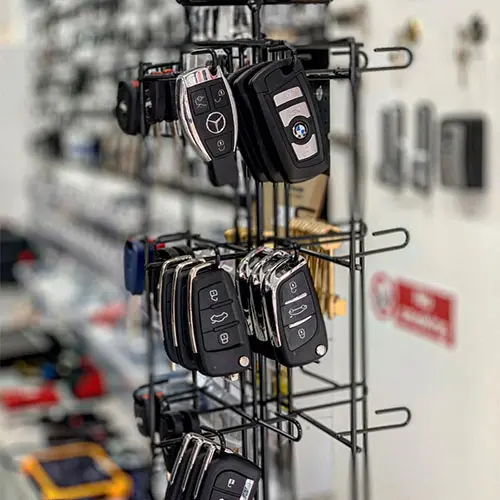
24
July9 Things Your Parents Taught You About Ignition Key Repair
Ignition Key Repair: A Comprehensive Guide
In today's modern vehicles, ignition keys have actually become more than just a basic metal piece that begins an engine. With improvements in technology, they have developed into advanced devices that frequently incorporate transponders and electronic chips. When these keys breakdown, chauffeurs may discover themselves stranded or dealing with pricey repairs. This short article checks out the different aspects of ignition key repair, highlights typical concerns, and offers a guide to reliable repairing and resolution.

Understanding Ignition Keys
Ignition keys can be broadly classified into various types:
- Traditional Keys: These appear metal keys that mechanically unlock the ignition system.
- Transponder Keys: Equipped with a microchip, these keys interact with the vehicle's ignition system to allow beginning.
- Keyless Entry Fobs: These smart keys make it possible for wireless entry and ignition, often using Bluetooth or RFID innovation.
The complexity of these keys differs, affecting not just how they work but likewise the repair and replacement methods.
Typical Issues with Ignition Keys
A number of problems can occur with ignition keys, leading to the need for repair. Understanding these concerns can assist vehicle owners acknowledge when they need professional assistance.
Key Wear and Tear: Over time, consistent usage can use down the teeth of traditional keys, making it hard to turn in the ignition.
Transponder Malfunctions: If the chip in the transponder key becomes harmed, it may not interact efficiently with the vehicle, avoiding it from starting.
Battery Failure in Key Fobs: Keyless entry fobs depend on batteries to operate. A dead battery means the vehicle can not be unlocked or begun.
Physical Damage: Dropping or bending keys can lead to both functional and cosmetic issues, affecting performance.
Program Errors: Newly configured keys might not sync properly with the vehicle's ignition system, specifically after a battery change or vehicle repairs.
Troubleshooting Ignition Key Issues
To resolve ignition key problems, vehicle owners can try the following troubleshooting steps:
- Inspect the Key: Check for visible damage such as bends, fractures, or broken components.
- Check the Batteries: For key fobs, replace the battery and test if the vehicle reacts.
- Inspect Connections: Ensure that there is no dirt or debris in the ignition cylinder that could impede the key's performance.
- Try a Spare Key: If readily available, test a spare key to determine whether the problem is with the initial key or the ignition system itself.
- Look for Error Codes: Many modern-day vehicles have onboard diagnostic systems that can reveal problems associated with ignition. A specialist can scan for codes if issues continue.
Repair vs. Replacement
When confronted with ignition key problems, vehicle owners typically wonder whether to repair or replace the key. The decision depends upon numerous factors:
- Cost-Effectiveness: Repairing a traditional key is typically less pricey compared to programming a new transponder or fob.
- Type of Key: Traditional keys might be quickly changed or replicated at a regional locksmith, while more intricate keys typically need professional services from a dealership.
- Intensity of Damage: If a key is badly harmed, replacement is frequently the most trustworthy long-lasting solution.
Advantages and disadvantages of Repairing Ignition Keys
| Pros | Cons |
|---|---|
| Affordable for easy concerns | May not resolve deep-rooted problems |
| Maintains the initial key design | Limitations on key types (e.g., smart keys) |
| Faster turn-around for small repairs | Repairing might be momentary |
Benefits and drawbacks of Replacing Ignition Keys
| Pros | Cons |
|---|---|
| Guaranteed performance | Generally more costly |
| Upgrade choices offered | Requires programming for complex keys |
| Possibly boosted functions (e.g., keyless entry) | Takes time to get and configure |
Frequently Asked Questions About Ignition Key Repair
1. Just how much does it cost to repair an ignition key?
The cost can differ widely based upon the type of key and the particular concern. Traditional keys may cost around ₤ 15-₤ 50 to duplicate, while transponder keys can vary from ₤ 50 to ₤ 200, thinking about programming.
2. Can I repair a broken key myself?
Minor repairs like cleansing or battery replacement for fobs can typically be done in your home. Nevertheless, complicated concerns, especially with transponder keys, are best handled by experts.
3. The length of time does it require to repair or replace an ignition key?
Requirement repairs can typically be completed within the hour, while replacements, particularly for transponder keys or smart keys, may take longer due to programming requirements.
4. What should I do if my key breaks in the ignition?
If a key breaks in the ignition, do not attempt to remove it yourself. Rather, call a locksmith or your dealer for expert support.
5. Do I need to reprogram my key after replacing the battery?
Most of the times, replacing a key fob battery does not need reprogramming. Nevertheless, if the vehicle does not respond after a battery change, you might require to reprogram the fob.
ignition Key Repair (Git.paulcolfer.ie) is a vital aspect of vehicle upkeep that should not be neglected. With the increase in technological combination into lorries, comprehending how ignition keys work, acknowledging typical concerns, and knowing when to seek aid can save money and time. Whether deciding for repair or replacement, vehicle owners ought to focus on safety and performance to ensure smooth operation and a seamless driving experience. Keeping a spare key on hand and attending to concerns early can also assist alleviate prospective troubles down the road.


Reviews